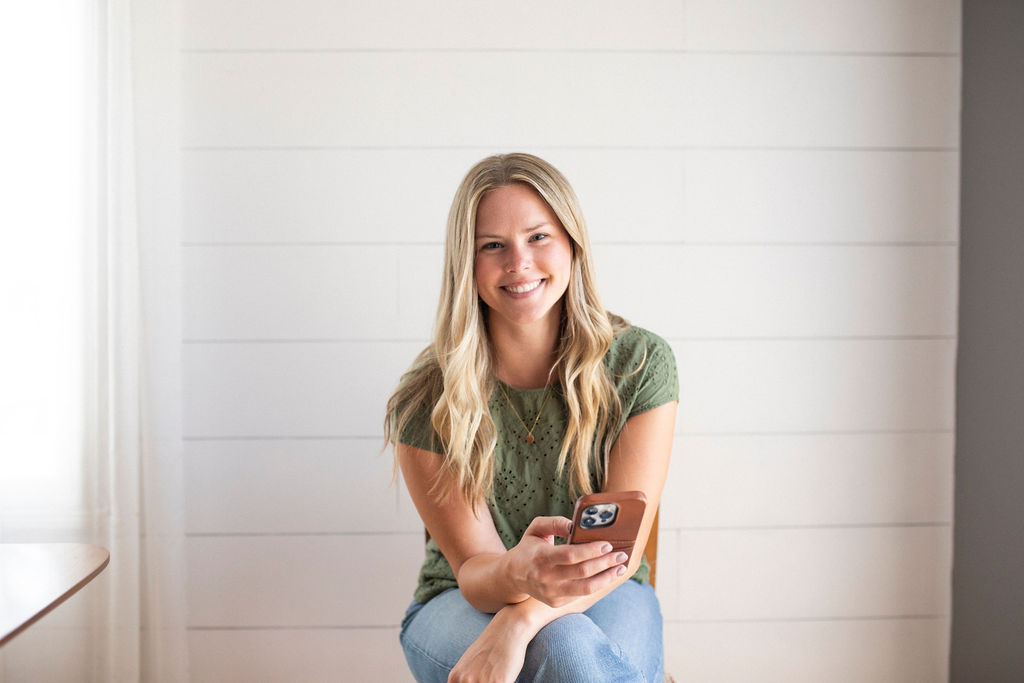We’re excited to introduce you to the always interesting and insightful Sharla Horton. We hope you’ll enjoy our conversation with Sharla below.
Hi Sharla, so excited to talk about all sorts of important topics with you today. The first one we want to jump into is about being the only one in the room – for some that’s being the only person of color or the only non-native English speaker or the only non-MBA, etc Can you talk to us about how you have managed to be successful even when you were the only one in the room that looked like you?
Growing up, I attended nearly all-Black schools and went to all-Black churches. My friends were Black. My neighbors were Black. And, I participated in youth and social activities that were all Black. It wasn’t until my freshman year of college at UNT that I looked around and everyone didn’t look like me. Then, I graduated college and started my professional journey. Fewer and fewer Black people – Black women especially – were in the same rooms I was in. Now, nearly 25 years into my career, I often find myself being the only Black person there – in board rooms, on panels, in leadership team meetings, and sometimes even in restaurants. As such, I have had to learn how to navigate these spaces which began with doing some really careful introspection. I used to be angry when I’d walk in a room full of leaders, power-holders, or decision makers and not see another Black face. Actually, I still get angry because why…..why aren’t they there? Now, however, in addition to my anger and frustration, I also carry with me into those rooms a strong sense of honor and responsibility. There’s this thing that people call “imposter syndrome” which is an internal wrestling with your own value. You think you don’t belong in a certain place or in certain rooms. The truth is that, for Black people and other marginalized people, imposter syndrome is not at all about YOU; it’s about the systems and structures you’ve endured. It’s about the racism and sexism and ageism and all the other -isms that you’ve experienced and that have weighed you down and forced upon you a false unworthiness. So, how did I overcome this? Receipts. People have long told me that I was smart, clever, brilliant, funny; I’ve heard these accolades my whole life, but I didn’t HEAR them. I didn’t internalize them. I also heard that I was too loud, hard to work with, talked too much, and too aggressive. I did internalize these characteristics. One day, after being fired from a job that I loved and was really good at but was “too much” for, I decided to believe them. I decided to believe the good that people had said about me and not the negative. I looked back at all I had accomplished and who I had become and wrote it all down. I couldn’t believe what I was seeing. Who I was on paper was immeasurably more than what I had given myself credit for and what I had believed about myself before. And that’s who started walking in those rooms. Bold. Assertive. Confident. Assured. Accomplished. Intelligent. Capable. And worthy. When I started believing who I really was rather than what a handful of folks had said, it changed the way I showed up. Now, when I’m the only Black woman in the room, I walk in as all Black women. While often frustrated that I’m the only one, I’m also honored to be the one and recognize the immense power and honor that rests on my shoulder to exemplify and normalize Black brilliance, Black success, Black intellect, Black creativity, Black collectivism, and most importantly Black joy. I have also learned to manage my input as well as my output in these situations because in addition to the frustration, honor, and privilege that I’ve expressed, these situations also sometimes come with a heavy burden. It’s hard to be the only anyone anywhere, so my self-care is crucial. I am careful to be attuned to my body and mind and to remain aware of the emotional, mental, and physical cues that say to me “this is too much today,” at which point I will unapologetically excuse myself from any room that is not suiting me well.

Appreciate the insights and wisdom. Before we dig deeper and ask you about the skills that matter and more, maybe you can tell our readers about yourself?
I love talking about what I do, but I always caution people to sit down and buckle in – because it’s a lot. I bucket my work into 4 categories – my professional work (what I primarily get paid to do), my passion work (what I feel happy doing), my purpose work (what I feel called to do), and my power work (what I’m duty-bound to do).
Professionally, I am a career-educator-turned consultant. After a nearly 20-year school-based career in education and education-adjacent nonprofit work, I work full-time in education consulting. Currently, I work for a Boston-based nonprofit where I lead a professional learning network of about 60 Texas school districts. The Network is focused on helping K-12 school district executives think more strategically about using their resources (people, time, and money) to get the outcomes they want for kids.
My passion work is also in consulting and strategy – but a different kind. In the last 5-7 years, I have found myself entering a lot of new phases – new jobs, new homes, new life statuses, new titles – and they pretty much all came after some significant tumult in those respective areas. In 2021, I started a boutique consultancy, LIfted Consulting and Strategy, where I help people, teams, and organizations create new visions and develop the strategies and plans to execute those visions. My focus areas are career strategy, organizational strategy, and entrepreneurial strategy. I live by the mantra “dream big and do bigger,” and this what my passion work is all about.
My purpose work was born out of my doctoral research and dissertation. In 2020, my best friend turned business partner and I co-founded School Leadership for Social Justice, a non-profit consultancy focused on radically improving academic experiences and outcomes for Black students in K-12 schools. We believe not nearly enough people are talking about the less than ideal (tragic if you ask me) Black student experiences and outcomes in schools, and even fewer are taking concrete actions to change those experiences and outcomes. We partner with schools, districts, and education organizations across the country to help them understand the problem of educational inequity and develop effective, equity-centered leaders, improve instruction by utilizing evidence-based, equity centered pedagogies, and implementing equity-centered policies, practices, and programs,
Finally, there’s my power work, which I think is the most important of all the work I do. I believe that once you sit in seats of power and influence, it is your responsibility to use every resource you have – your voice, your time, your money – to advocate for others. For me, my power work is my community service. My power work includes serving on local boards and committees, volunteering for causes and organizations whose missions I believe in, and financially supporting organizations that make good things happen for people.
I can easily answer the question “what do you do,” but the question I am still having a hard time answering is “how do you find time to do it all.”

Looking back, what do you think were the three qualities, skills, or areas of knowledge that were most impactful in your journey? What advice do you have for folks who are early in their journey in terms of how they can best develop or improve on these?
Transparency, audacity, and humility. Once of the most frequent comments/compliments I get is that people really love and appreciate my transparency. Some would argue (like my my mom) that I’m too transparent at times, but I don’t know how to be any other way! I think if we were all more honest (appropriately so, though) about our challenges, our realities, our trauma, etc., we’d make it so much easier for the next person to get through theirs. Too many of us go through life trying to achieve a status that we’ve seen but that isn’t really true at all. Most of the people that you modeled your life after had some hard times they never talked about. They failed at something. They got fired. They had a bad break up. They cried themselves to sleep at night. They filed for bankruptcy. Something. And if all you see is where they are now and not how they got there, you’ll give up when things get hard for you and never reach YOUR destiny. For those who are early in their journeys, be transparent about who you are, what your lived experience is/has been, and what you’re trying to accomplish in life. And, as you seek guidance and mentorship from others, ask them to do the same.
I’m going to talk about audacity and humility together because, at first sight, these aren’t two qualities that logically fit together. I’ve learned, however, that these two are a match made in success heaven! I remember hearing the word “audacity” and it had such a negative tone, It was essentially an insult. Then I read pieces from Barack Obama’s “The Audacity of Hope.” Then I heard Stacey Abrams speak one day and she spoke about being audacious – knowing who you are, what you bring, and what you deserve, and not accepting anything less. Now audacity meant something different to me; it was something to pursue, and something to drive me. But audacity without humility could be dangerous. That’s where I found myself at one point. I knew everything that I knew and and not very much of what I didn’t. Dangerous. A few years ago I read an article by a man named George Theoharis. In this article, he spoke of “arrogant humility,” which he defined as knowing who you are, what you know, what you bring, and what you deserve (audacity) – and being very clear about that – while also recognizing where you have room for personal growth and development and where you need to mature in your knowledge, beliefs, and actions – and being very clear bout that as well. This audacity coupled with humility, or arrogant humility as Theoharis coined it, has been incredibly beneficial in both my personal and professional journeys, and I was able to develop these qualities through personal reflection and intentionally seeking feedback from trustworthy people (friends, colleagues, family members, and managers) who all wanted to see me become the best version of myself and were willing to participate in my growth process.

What is the number one obstacle or challenge you are currently facing and what are you doing to try to resolve or overcome this challenge?
The number one challenge that I am currently facing is managing my time and energy. I just shared about all of my work – professional, passion, purpose, and power – and doing all of these things requires time. Doing them all WELL requires even more time!
At the beginning of the year, I found myself feeling exhausted, so I made a list of all of my current obligations and there were 15 things that I committed to, exclusive of my social life. 15 is a LOT. I immediately assigned a numeric value to each of the things. 1 – these were things that were solely because of competence. They were things I had the skill to do and was doing just because someone asked me to do them. 2 – these were things where I was either committed to a person involved. 3 – these were things I that meaningfully advanced my career or improved my life. 4 – these were things that I felt called to.
More than half of the list was 1s and 2s. The other (less than half) was 3s and 4s. I realized that I was spending far too much time doing things that didn’t align with my priorities, purpose, and passion and the only way to do more of the things that mattered to me was to do less of the things that didn’t. In February, when I started this exercise, I immediately resigned from all the 1s. Since then, I’ve been working on the 2s so I can make more room for the 3s and 4s. On the surface, it seems like an easy task, but when there are friends (and even family) or longstanding personal or professional relationships on the other side, it’s a little harder to unravel. So, right now, I’m working on my strategy to clear myself from some unproductive or low-priority commitments so that I can put more effort and attention on the things that matter most to me.
Contact Info:
- Website: https://www.liftedbysharla.net
- Instagram: https://www.instagram.com/liftedbysharla
- Linkedin: https://www.linkedin.com/drsharlahorton


so if you or someone you know deserves recognition please let us know here.




